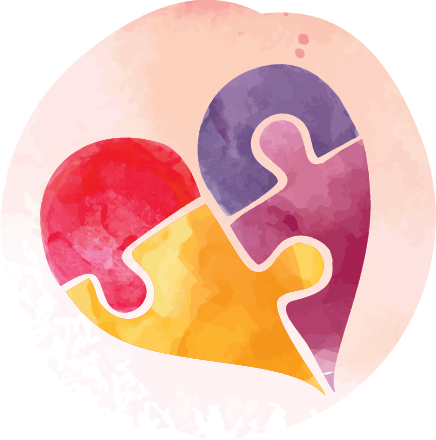Press











ABOUT Sam
SERVICES
Team Ruthless
EVENTS
GRIEFHAB™
PODCAST
RETREATS
shop
HEALING TOGETHER THROUGH THE HOLIDAYS - MAIN EVENT
HEALING TOGETHER - FOR A CAUSE: VIRTUALLY
HEALING TOGETHER - FOR A CAUSE: PILATES IN THE PARK - MICHIGAN
HEALING TOGETHER - FOR A CAUSE: VISIBLE - COLORADO
September 6-7
Jimtember Virtual Jubilee
blog
December 2nd - 8th / Metro Detroit AND VIRTUALLY
August 27th & 28th
August 30-31st
rUTHLESS IN THE ROCKIES
TEAM RUTHLESS
THE CONFIDENCE CONFERENCE
mOBILE rECOVERY dAY
Next event: September 10-23rd, Colorado
October 5-6th -
Virtual Event
September 30th, Castle Rock, Colorado
7 Groups Every week Plus Every Holiday
HEALING TOGETHER - FOR A CAUSE: Ride & ROAR - DALLAS
October 11 -12th
Stay Tuned!
FACES OF GRIEF
JOIN US
Can Happiness Cause Depression?
June 3, 2016
Many people consider happiness a destination, not a journey. According to this mindset, happiness is something we achieve after lots of hard work, rather than something we experience as we work towards our goals. Unfortunately, this mindset often leads to a surprising outcome: after we have finally accomplished that which was supposed to make us happy, we may find ourselves feeling depressed. Your online limited licensed psychologist is here to examine this unique and challenging phenomenon.
What Do You Need To Be Happy?
What is your definition of happiness? Many people consider their happiness to be contingent upon various external factors. Though you may not realize it, you may have even fallen victim to this classic mental trap before. Consider the following example statements.
I’ll be happy when I…
- get a raise.
- get married.
- lose weight.
- get my driver’s license.
- retire.
- have a baby.
New careers, getting married, retiring, having children, graduating, major awards, and losing weight are all common examples of events that are supposed to make us happy, but can actually lead to us feeling depressed or unfulfilled. Similarly, people may feel especially down as their vacation draws to an end or on Sundays when they know that the next workweek is only a day away. How does this happen?
- Learn to appreciate little moments in your day-to-day life, rather than only focusing on the big events.
- Recognize that even the happiest people feel a little down sometimes. True emotional health requires a balance between happiness and sadness.
- Find something to look forward to in every day or, at the very least, every week.
- Don’t be afraid to talk to someone about the emotions you are experiencing.
Having too much happiness lead to depression is a common pattern, but it does not mean that you are doomed to depression any time you experience an unusually happy or exciting event in life. With the proper mindset, this trap can be avoided. If you or someone you know may be at risk for this type of challenge (or potentially even already suffering from depression), talking to an experienced mental health counselor may be enormously beneficial. I offer online counseling sessions that allow me to meet with my clients whenever they need, however they need. To learn more about online psychotherapy sessions, visit my website at www.NeverGiveUp.care. You can also call me directly at (248) 730-5544. I look forward to talking with you!
Leave a Reply Cancel reply
120 E. Front St. Loft 2 Traverse City MI 49684 &
77 Monroe Center St Ste 600 Grand Rapids MI 49503
phone : +1 (231)707-0707


Donate TO GRIEFHAB™
Donate today to help make our events and services free for everyone.
You can also donate directly to support a specific client in need.
four
three
info & Investment
two
THE FOUNDER
one
fIVE
GRAB A COPY OF MY
BOOKS & MERCHANDISE
four
three
info & Investment
two
THE FOUNDER
one


fIVE
GRAB A COPY OF MY
BOOKS & MERCHANDISE










HEALING TOGETHER EVENT
EVENTS
four
three
info & Investment
two
THE FOUNDER
one
fIVE
GRAB A COPY OF MY
BOOKS & MERCHANDISE
four
three
info & Investment
two
THE FOUNDER
one





fIVE
GRAB A COPY OF MY
BOOKS & MERCHANDISE










FACEBOOK FAMILY
GRIEFHAB™ SERVICES
FACES OF GRIEF
Our Press Features
THE BE RUTHLESS SHOW
two
three
Recent Articles
one





Coming in September! Stay Tuned.
December 2nd -8th / Metro Detroit AND VIRTUALLY
August 25th
August 30-31st
October 11 -12th
Stay Tuned!










four
three
info & Investment
two
THE FOUNDER
one





fIVE
GRAB A COPY OF MY
BOOKS & MERCHANDISE
four
three
info & Investment
two
THE FOUNDER
one





fIVE
GRAB A COPY OF MY
BOOKS & MERCHANDISE












